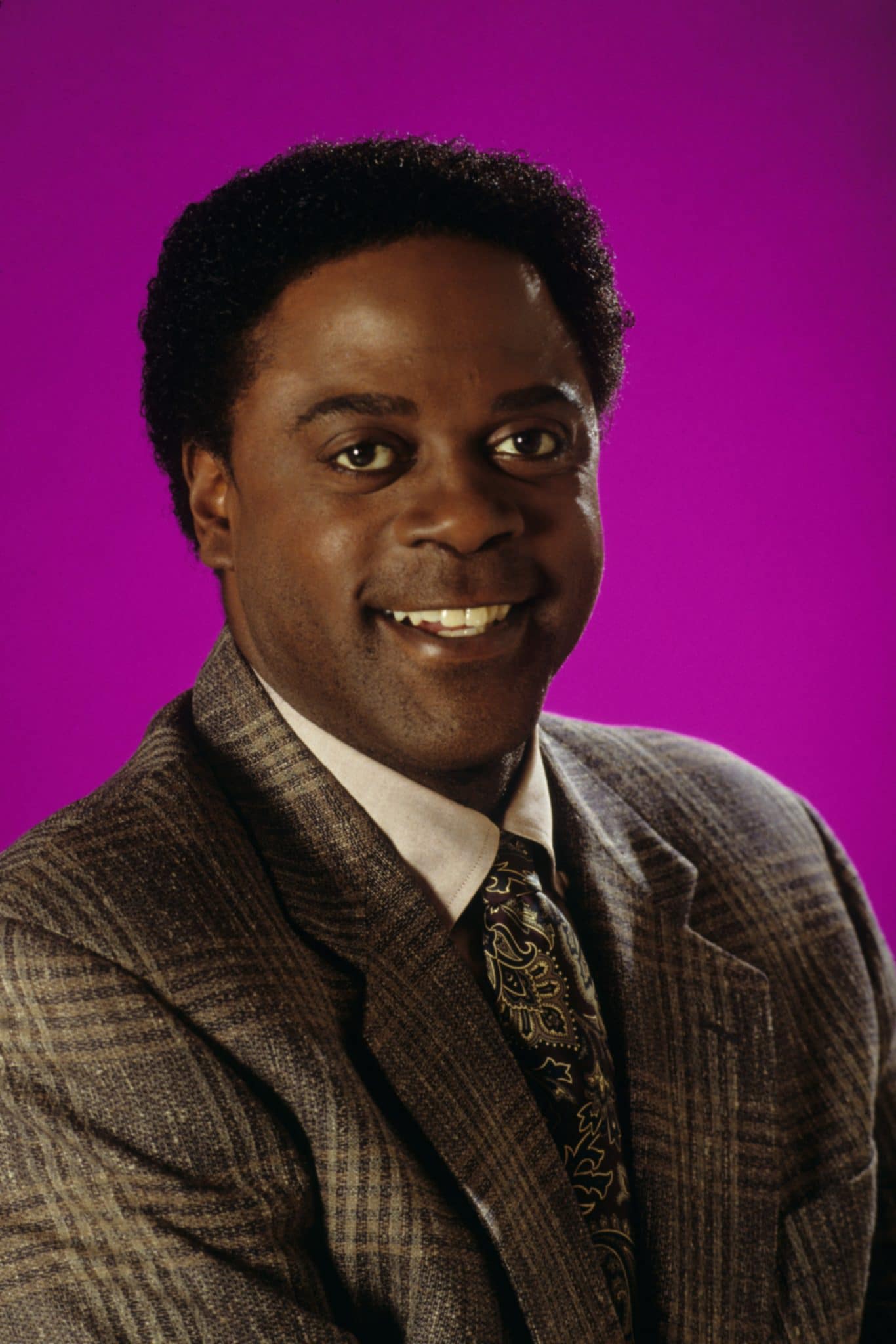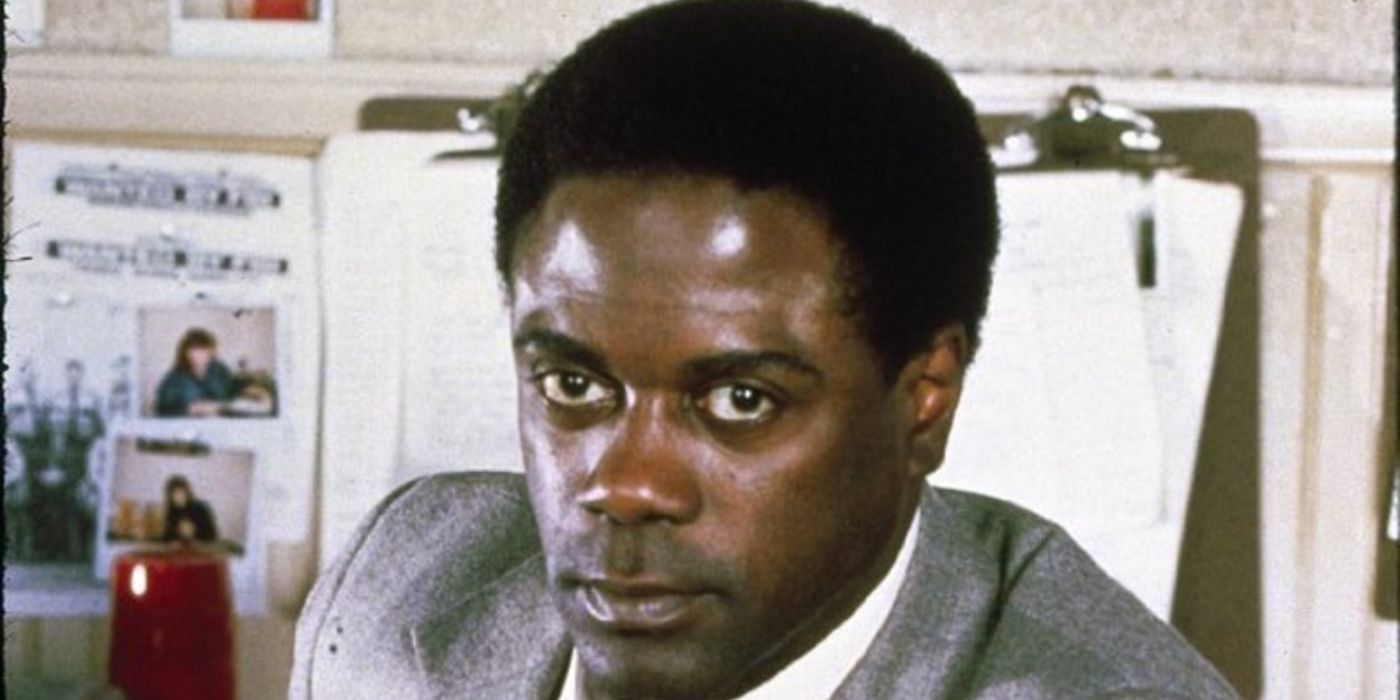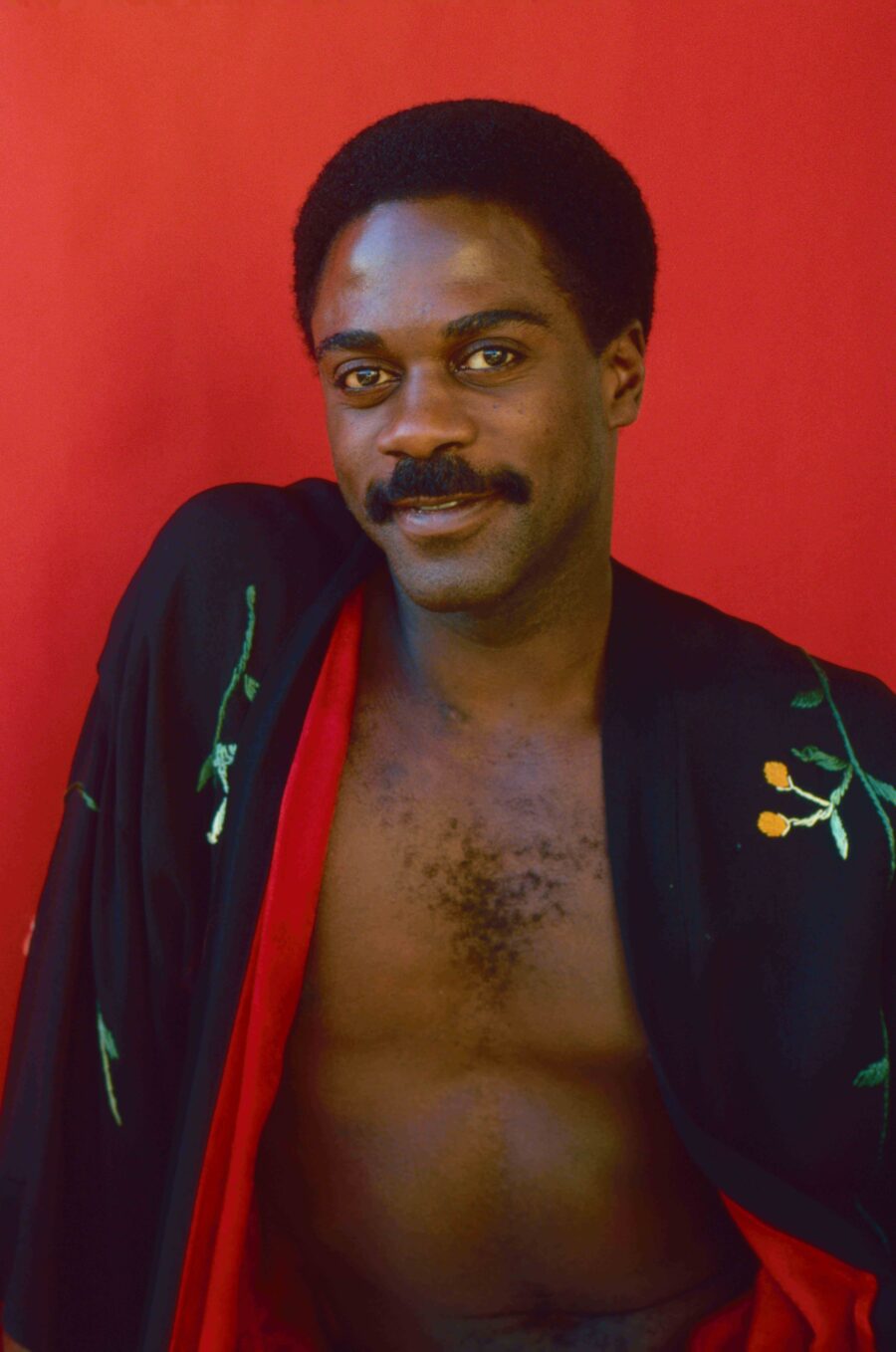Howard Rollins: A Brilliant Talent's Tragic Journey
In the vast tapestry of American cinema and television, certain stars shine brightly, leaving an indelible mark despite their relatively short time in the spotlight. One such luminary was Howard Rollins, an actor whose profound talent and captivating presence promised a career of unparalleled heights. From his humble beginnings in Baltimore to gracing the silver screen and primetime television, Rollins carved a niche for himself with powerful, nuanced performances that resonated deeply with audiences and critics alike. His journey, however, was not without its profound challenges, ultimately curtailing a career that was destined for even greater acclaim.
This article delves into the remarkable life and complex legacy of Howard Rollins, exploring the roles that defined his career, the personal struggles that shadowed his brilliance, and the enduring impact he left on the entertainment world. We will trace his path from a young man discovering his passion for acting to becoming an Academy Award-nominated artist, and ultimately, a figure whose story serves as a poignant reminder of both immense talent and the fragility of human existence.
Table of Contents
- Howard Rollins: A Biographical Overview
- Early Life and Formative Years
- Rising Star: Howard Rollins' Breakthrough Roles
- The Pinnacle of His Career: "Ragtime" and "A Soldier's Story"
- Television Stardom: "In the Heat of the Night"
- The Shadowed Path: Personal Struggles and Career Derailment
- A Legacy Remembered: Howard Rollins' Impact and Untapped Potential
- Conclusion: Honoring a Complex Star
Howard Rollins: A Biographical Overview
Howard Ellsworth Rollins Jr. was an American stage, film, and television actor whose career, though tragically cut short, was marked by extraordinary performances. Born on October 17, 1950, in Baltimore, Maryland, Rollins quickly rose through the ranks of the acting world, earning critical acclaim and a devoted fan base. He became a familiar face in households across America, particularly for his role as Investigator Virgil Tibbs in the popular television series "In the Heat of the Night." However, his journey was also one fraught with personal challenges, including well-documented drug problems and legal issues that ultimately impacted his professional trajectory. Howard Rollins passed away on December 8, 1996, at the age of 46, due to complications from lymphoma, leaving behind a legacy of powerful acting and a poignant reminder of the struggles many face behind the scenes.
Personal Data & Biodata: Howard Rollins
| Full Name | Howard Ellsworth Rollins Jr. |
| Date of Birth | October 17, 1950 |
| Place of Birth | Baltimore, Maryland, United States |
| Parents | Howard E. Rollins Sr. (Father) |
| Siblings | Youngest of four children |
| Education | Towson State College (studied theater) |
| Occupation | Actor (Stage, Film, Television) |
| Notable Roles |
|
| Awards/Nominations |
|
| Date of Death | December 8, 1996 |
| Age at Death | 46 |
| Cause of Death | Complications from Lymphoma |
Early Life and Formative Years
Roots in Baltimore: A Humble Beginning
Howard Ellsworth Rollins Jr. was born on October 17, 1950, in Baltimore, Maryland, the youngest of four children to Howard E. Rollins Sr. His childhood unfolded in the 1950s, a decade often characterized by the post-war baby boom and a prevailing sense of conformity. It was a time when societal norms often encouraged individuals to follow established paths rather than venturing out on their own. Yet, even within this era, young Howard Rollins began to show glimmers of a unique spirit and an burgeoning interest in the performing arts.
Growing up in Baltimore provided Rollins with a diverse cultural backdrop, which undoubtedly influenced his worldview and artistic sensibilities. While the specifics of his early home life are not widely detailed, it's clear that the foundation for his future career was laid during these formative years, perhaps through exposure to local theater or simply an innate passion for storytelling and character portrayal.
Discovering the Stage: Towson State College
Rollins' formal journey into acting began when he enrolled at Towson State College (now Towson University), where he dedicated himself to the study of theater. It was during his time at Towson that his raw talent began to be honed and refined. The academic environment provided him with the theoretical knowledge and practical experience necessary to pursue a professional acting career. His dedication to his craft was evident, as he immersed himself in the world of dramatic arts.
His first significant break into acting came through a stroke of serendipity and the encouragement of a friend. It was a friend who convinced him to try out for a role in a stage production of John Steinbeck's classic, "Of Mice and Men." This opportunity proved to be a pivotal moment for Howard Rollins, offering him his initial foray into professional performance and solidifying his resolve to pursue acting as a lifelong calling. This early experience undoubtedly instilled in him the confidence and drive that would propel him to national recognition.
Rising Star: Howard Rollins' Breakthrough Roles
After honing his skills on the stage, Howard Rollins quickly transitioned into television and film, where his powerful presence and natural acting ability began to garner significant attention. His early roles were crucial in establishing him as a serious and versatile actor, capable of embodying complex characters with depth and authenticity. These performances laid the groundwork for the widespread recognition that would soon follow.
One of his earliest notable television roles came in 1978 when he portrayed Andrew Young in the miniseries "King," a biographical drama about the life of Martin Luther King Jr. This role allowed Rollins to showcase his dramatic range and his ability to inhabit historical figures with dignity and conviction. The miniseries was a significant cultural event, and Rollins' performance contributed to its impact.
The following year, in 1979, Howard Rollins further solidified his rising star status with his role as George Haley in "Roots: The Next Generations." This miniseries was the highly anticipated sequel to the groundbreaking "Roots," and Rollins' portrayal of the real-life author Alex Haley's father was met with critical acclaim. His work in "Roots: The Next Generations" earned him an Emmy Award nomination, signaling to the industry that a major talent had arrived. These early successes were clear indicators of the immense potential that Howard Rollins possessed, setting the stage for his most iconic performances.
The Pinnacle of His Career: "Ragtime" and "A Soldier's Story"
The early 1980s marked the zenith of Howard Rollins' cinematic career, with two roles that not only brought him widespread critical acclaim but also cemented his reputation as one of the most compelling actors of his generation. These performances demonstrated his profound ability to command the screen and convey the intricate emotional landscapes of his characters.
Coalhouse Walker Jr. in "Ragtime" (1981)
Without a doubt, one of the most defining roles for Howard Rollins was his portrayal of Coalhouse Walker Jr. in the 1981 film "Ragtime," directed by Miloš Forman. Based on E.L. Doctorow's acclaimed novel, the film is a sprawling epic set in early 20th-century New York, exploring themes of race, class, and social justice. Rollins' performance as Coalhouse Walker Jr., a proud and dignified Black musician who is pushed to the brink by racial injustice, was nothing short of mesmerizing. He brought a quiet intensity and simmering rage to the character, capturing the essence of a man fighting for his dignity in a deeply prejudiced society.
His nuanced and powerful performance earned Howard Rollins an Academy Award nomination for Best Supporting Actor in 1981. This was a significant achievement, placing him among the elite actors in Hollywood. In "Ragtime," Rollins shared the screen with an illustrious cast, including screen legend James Cagney in his final film role, as well as Brad Dourif, Moses Gunn, and Elizabeth McGovern. Rollins' ability to hold his own alongside such seasoned performers, and indeed, to often steal scenes, spoke volumes about his immense talent. The role of Coalhouse Walker Jr. remains a powerful testament to Rollins' acting prowess and his capacity to deliver performances that resonate deeply with audiences.
Captain Davenport in "A Soldier's Story" (1984)
Following his success in "Ragtime," Howard Rollins continued to impress with his lead role as Captain Richard Davenport in the 1984 film "A Soldier's Story." Directed by Norman Jewison and adapted from Charles Fuller's Pulitzer Prize-winning play "A Soldier's Play," the film is a gripping murder mystery set on a segregated U.S. Army base in Louisiana during World War II. Rollins' character, Captain Davenport, is a Black military lawyer sent to investigate the murder of a Black sergeant, navigating racial tensions and prejudices within the military structure.
In "A Soldier's Story," Howard Rollins delivered another commanding performance. He portrayed Davenport with intelligence, integrity, and a quiet determination, embodying the challenges faced by a Black officer in a deeply discriminatory system. The film was critically acclaimed and further solidified Rollins' reputation as a serious dramatic actor capable of carrying a major motion picture. These two films, "Ragtime" and "A Soldier's Story," represent the peak of Rollins' film career, showcasing his remarkable talent and his commitment to portraying complex, significant characters.
Television Stardom: "In the Heat of the Night"
While his film roles brought critical acclaim, it was his starring role in the television series "In the Heat of the Night" that made Howard Rollins a household name and endeared him to millions of viewers worldwide. The series, which initially aired on NBC before moving to CBS, was based on the Oscar-winning 1967 film of the same name and the novels by John Ball.
Howard Rollins took on the challenging and iconic role of Investigator Virgil Tibbs, a highly educated and astute detective. He starred opposite veteran actor Carroll O'Connor, who played Police Chief Bill Gillespie. The dynamic between Tibbs and Gillespie, a Black Northern detective and a white Southern police chief, formed the core of the show's appeal. Their often-contentious but ultimately respectful relationship, as they navigated racial tensions and solved crimes in a fictional Mississippi town, resonated deeply with audiences.
Rollins brought a quiet dignity, sharp intellect, and subtle intensity to the character of Virgil Tibbs. His portrayal was crucial in making the show a hit, as he balanced Tibbs' professional competence with his personal struggles in a racially charged environment. The series provided Rollins with a consistent platform to showcase his acting prowess to a broad audience, and he quickly became one of television's most popular and richest actors, born on October 17, 1950, in Baltimore, Maryland, United States. His work on "In the Heat of the Night" cemented his status as a television star, making Virgil Tibbs an enduring character in the annals of TV history.
The Shadowed Path: Personal Struggles and Career Derailment
Despite his immense talent and professional success, the life of Howard Rollins was deeply shadowed by significant personal struggles. He had a troubled life with well-documented drug problems and legal issues that began to surface during the height of his career. These challenges proved to be incredibly difficult for Rollins to overcome, and they ultimately had a profound impact on his professional life, derailing a career that was otherwise soaring.
His struggles with addiction led to repeated arrests and stints in rehabilitation facilities. The strain of these personal battles inevitably spilled over into his work. By 1993, the impact of his drug problems became too severe for his continued presence on "In the Heat of the Night." Howard Rollins was written out of the hit television series, a decision that was undoubtedly painful for both him and his legions of fans. This marked a significant downturn in his career, as consistent work became harder to secure amidst his ongoing personal challenges.
The story of Howard Rollins serves as a poignant reminder that even those with extraordinary gifts can be vulnerable to personal demons. His career, which had reached such incredible heights with an Oscar nomination for "Ragtime" and a beloved role as Virgil Tibbs, was tragically curtailed by the very real and devastating consequences of addiction. It highlights the immense pressure and scrutiny faced by public figures, and the often-unseen battles they fight behind the scenes.
A Legacy Remembered: Howard Rollins' Impact and Untapped Potential
Howard Rollins passed away on December 8, 1996, at the young age of 46, due to complications from lymphoma. His death sent shockwaves through Hollywood and among his fans, marking the premature end of a truly gifted actor's life. Rollins' passing in 1996, following a diagnosis of lymphoma, underscored the tragic reality of his short but impactful life. He was a talent who left an indelible mark on both film and television, and his death prompted reflections on his contributions alongside other black actors and films of his era, even years later in 2021 and 2022, highlighting his lasting relevance.
Despite the personal struggles that punctuated his later years, the legacy of Howard Rollins remains firmly rooted in his powerful performances. He was a trailblazer in many respects, portraying complex, dignified, and often challenging characters at a time when opportunities for Black actors were still limited. His roles as Coalhouse Walker Jr. in "Ragtime" and Captain Davenport in "A Soldier's Story" were not just acting showcases; they were significant portrayals that contributed to broader conversations about race, justice, and identity in American society.
Rollins' ability to convey profound emotion and intelligence, even in roles that required immense restraint, set him apart. He possessed an intensity that could captivate an audience with a single look or a quiet word. His portrayal of Virgil Tibbs on "In the Heat of the Night" brought a nuanced Black male lead into millions of homes weekly, challenging stereotypes and presenting a character of intellect and moral fortitude. The popularity of the show and his character demonstrated the hunger for diverse and well-developed representations on screen.
His untimely death meant that the world was deprived of countless more performances from an actor who still had so much more to give. The untapped potential of Howard Rollins is a significant part of his legacy – the roles he could have played, the stories he could have told. Yet, even within his abbreviated career, he achieved remarkable feats, earning an Academy Award nomination and becoming a beloved television star. He is remembered not just for his struggles, but more importantly, for the brilliance he brought to every character he embodied, leaving behind a body of work that continues to inspire and resonate.
Conclusion: Honoring a Complex Star
The life of Howard Rollins was a compelling blend of extraordinary talent, groundbreaking achievements, and profound personal challenges. From his early days in Baltimore to his nominations for both an Oscar and an Emmy, Rollins proved himself to be an actor of immense depth and charisma. He brought to life characters like Coalhouse Walker Jr. and Virgil Tibbs with a dignity and intensity that captivated audiences and critics alike, leaving an enduring mark on the landscape of American entertainment.
While his career was tragically impacted by his struggles with addiction and legal issues, leading to his premature death at 46, it is crucial to remember the brilliance he shared with the world. Howard Rollins was more than just a talented actor; he was a pioneering figure who, through his powerful performances, helped to shape narratives and challenge perceptions on screen. His legacy is a testament to his artistry and the lasting impact of his work.
We invite you to revisit the incredible performances of Howard Rollins. Watch "Ragtime" to witness his Oscar-nominated portrayal, or immerse yourself in the compelling dynamic of "In the Heat of the Night." His contributions to film and television are invaluable and continue to resonate today. What are your favorite Howard Rollins roles, or what memories do you have of his performances? Share your thoughts in the comments below and join us in celebrating the life and enduring legacy of this remarkable artist.

Howard Rollins From 'In The Heat Of The Night' Made A Comeback Before

In The Heat Of The Night Cast: Every Actor Who Has Died In Real Life

Unveiling The Lesser-Known Side Of Howard Rollins: Meet His Siblings